Whether we’re teachers, delivery drivers, small business owners, or retirees–no matter what we do, what we look like, or where we come from, most of us believe in caring for our families and leaving things better for those to come. Everywhere you look in California, those of us with the least are doing the most to support our families and communities. As our work has made America prosper, a greedy few have rigged the rules to redirect resources from our communities to their country clubs, from our classrooms to their multiple vacation homes, and from our public parks to their private jets. They pocket the profits without paying working Californians what they owe in liveable wages and their share of taxes. Then they blame all of our hard times on poor families and people of color. We need our government to do more than respond to us in a crisis. We need to fund our futures for the long haul. The choices our government makes now can set a better course for the future of our communities. As we continue to navigate COVID-19 and the social and economic challenges of our time, it is the job of our local and state leaders to make wealthy corporations pay what they owe for our collective health and well-being and to involve constituents in budgeting our values.
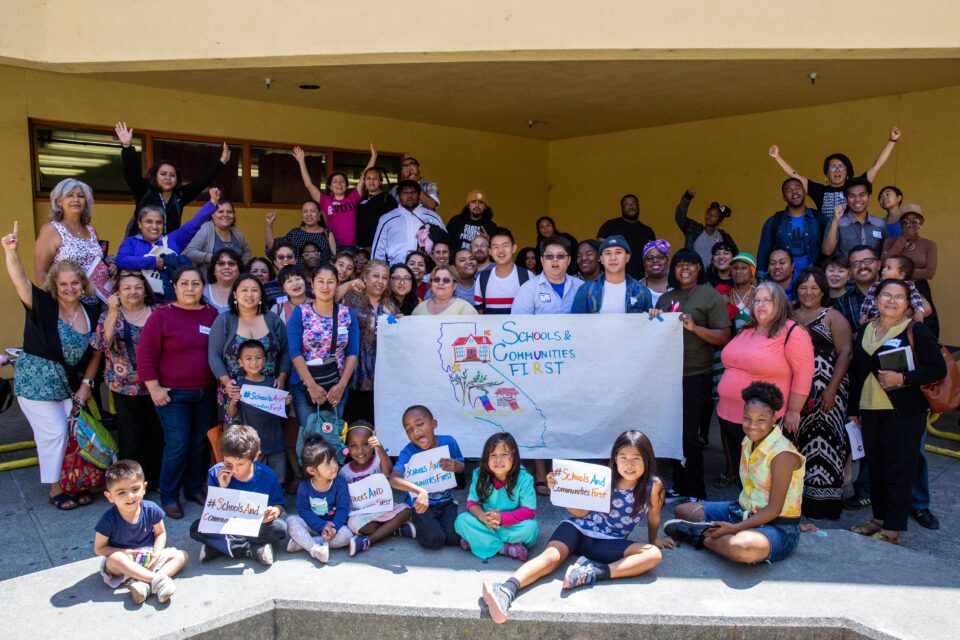
Orange denotes Bay Rising member organizations. Green denotes partner organizations. Click on the circles to visit each organization’s website.
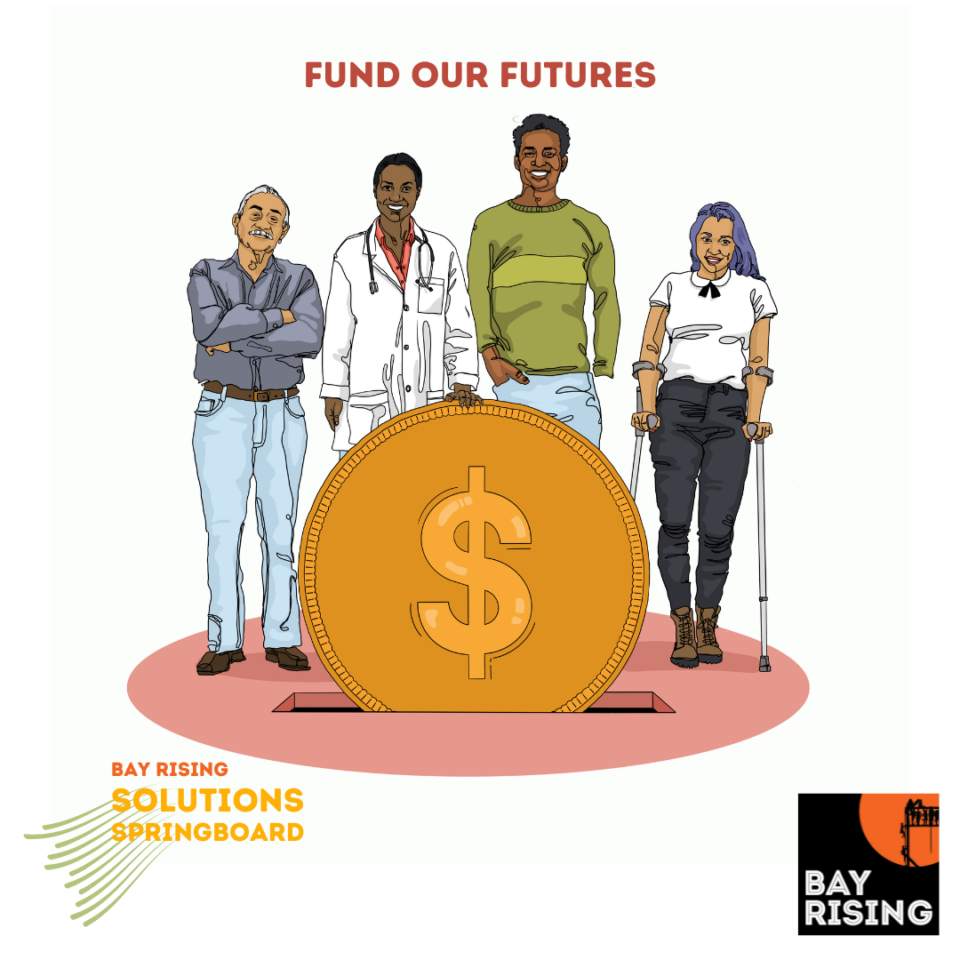
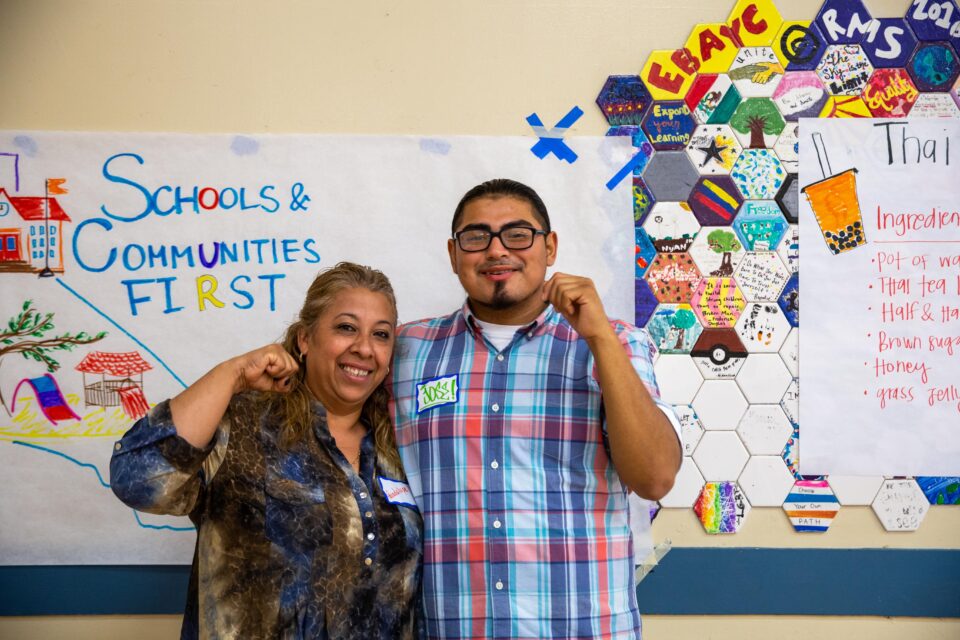

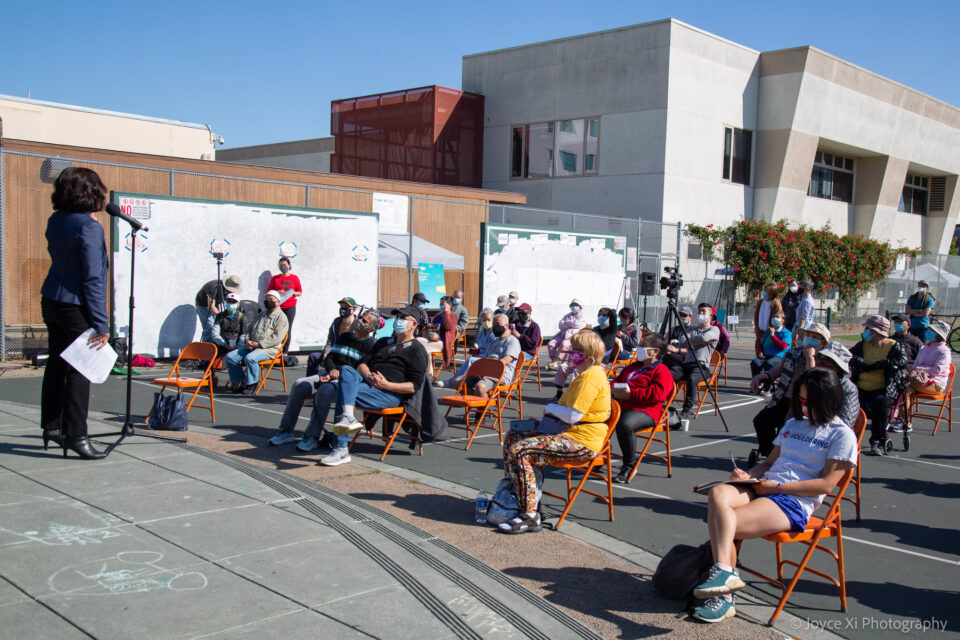
Find out more about California’s taxes, revenues, and budgets by checking out the California Budget and Policy Center, which specializes in making these complex issues accessible and easy to understand. While their work is focused on the state level, much of their research is applicable to the local level as well. See in particular: their Budget Page and their Taxes and Revenue Page.
Challenging California’s “third rail”
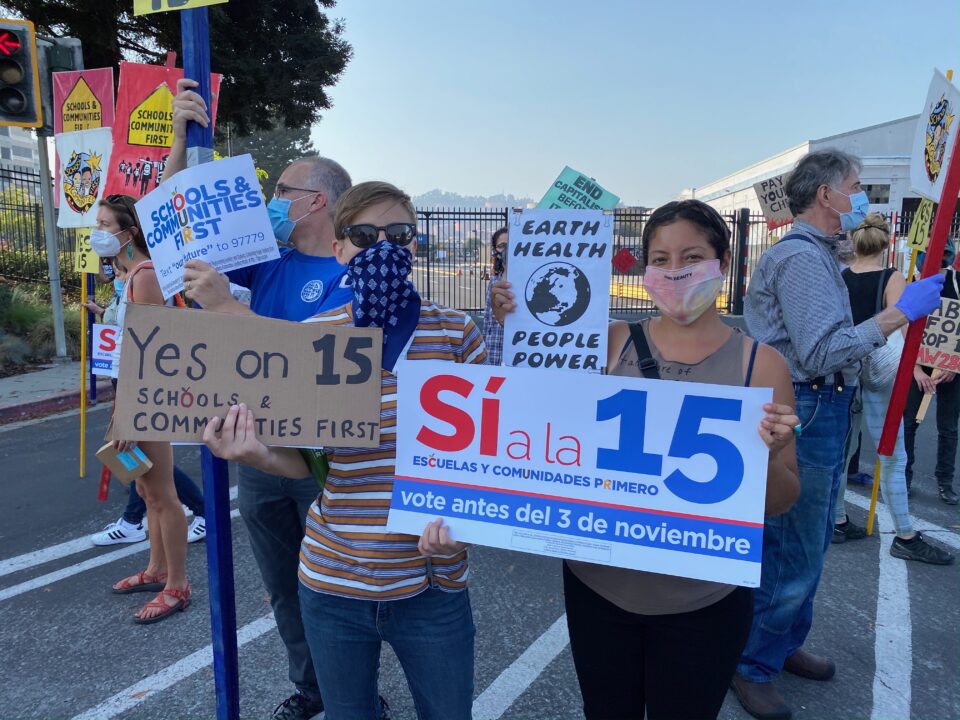

Photo credits, top to bottom: Adriana Oyarzun Photography / Oakland Rising, Adriana Oyarzun Photography / Oakland Rising, Joyce Xi Photography, Joyce Xi Photography, Maddie Cook / Evolve CA.